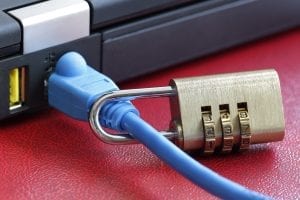Computer Security
ARE YOU PRACTICING GOOD COMPUTER HYGIENE?
 All of us are painfully aware of the online data breaches that occur with alarming frequency. No need to list them here – it would take this entire blog and then some. Most of these breaches that make headlines happen to large retail chains and government agencies – anywhere there are millions of people’s data stored in one place. That does not mean, however, that there is nothing individuals can do to keep themselves as protected as possible.
All of us are painfully aware of the online data breaches that occur with alarming frequency. No need to list them here – it would take this entire blog and then some. Most of these breaches that make headlines happen to large retail chains and government agencies – anywhere there are millions of people’s data stored in one place. That does not mean, however, that there is nothing individuals can do to keep themselves as protected as possible.
For your family, some of our homeowners’ insurance policies include identity-theft coverage, which may include credit monitoring and assistance if your identity is stolen. Prevention, of course, is the best protection so it is crucial that one practice sound “computer hygiene,” by keeping anti-virus software up-to-date, creating unique passwords and changing them periodically and never opening suspicious emails.
For businesses, sound computer hygiene is more complicated. Here’s why.
While it is true hackers go after the “big fish,” they also look for softer targets – smaller businesses with weaker defenses. The most vulnerable businesses are those that accept credit cards, store customer information, and conduct business online or in the cloud.
Cyber Insurance for Safety & Security
For these businesses, it is wise to look into adding cyber and privacy insurance protection to cover liability for a data breach in which the firm’s customers’ personal information is exposed or stolen. These policies cover a variety of expenses, including notification costs, credit monitoring, costs to defend claims by state regulators, fines and penalties, and loss resulting from identity theft. The policies can also cover liability from website media content and other risks from business interruption, data loss/destruction, computer fraud, funds transfer loss and cyber extortion.
One final note: Not all computer hygiene is high-tech. In a small business, every employee wears several hats so it’s important to have strict rules about handling customer data. What would happen if an employee discarded sensitive information into the dumpster by accident or an employee lost their laptop with all their information? A shredder could be a wise investment.
